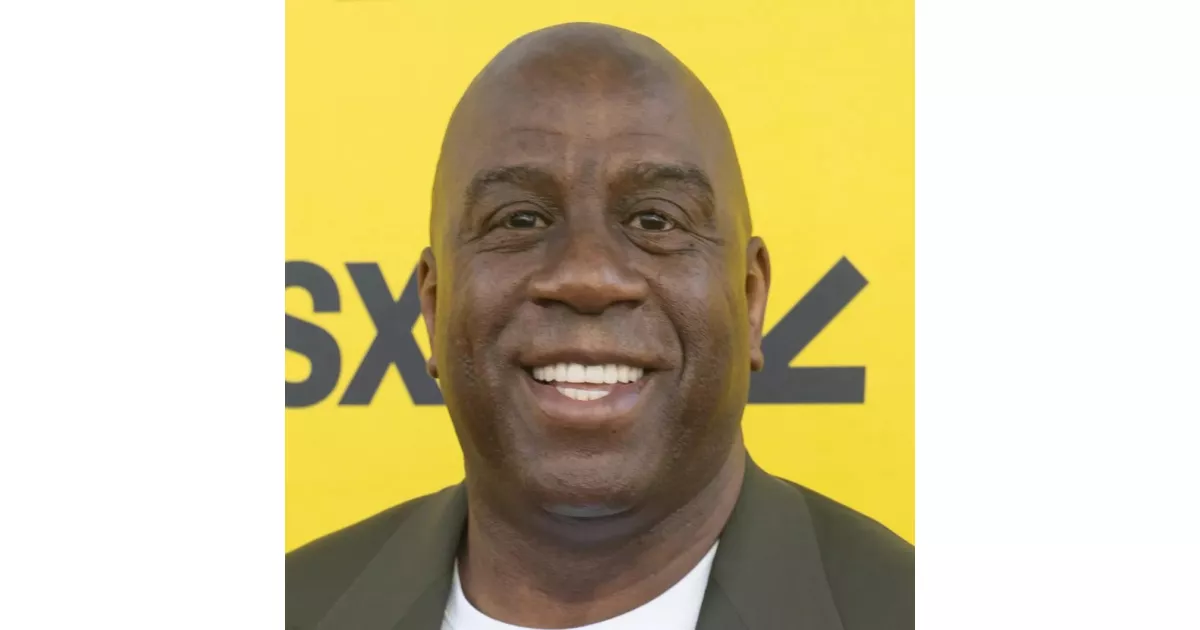Discover the career path of Magic Johnson, from the first major opportunity to industry-changing achievements.
Earvin "Magic" Johnson Jr. is a highly accomplished American businessman and retired professional basketball player, widely considered the greatest point guard ever. He played his entire NBA career with the Los Angeles Lakers, leading them to five NBA championships during the "Showtime" era after being drafted first overall in 1979 after winning a national championship with Michigan State. In 1991, he announced his HIV diagnosis and initially retired, returning for the 1992 All-Star Game (winning MVP) and briefly in 1996 before permanently retiring.
1969: Celtics Consecutive NBA Title
In the 1987-88 NBA season, Lakers coach Pat Riley publicly promised that the Lakers would defend their NBA title, even though no team had won consecutive titles since the Celtics did so in the 1969 NBA Finals.
1979: Drafted First Overall by the Los Angeles Lakers
In 1979, Magic Johnson was drafted first overall by the Los Angeles Lakers and expressed excitement about playing alongside Kareem Abdul-Jabbar.
1979: NBA Draft and National Championship
In 1979, Magic Johnson won a national championship with the Michigan State Spartans and was subsequently selected first overall in the NBA draft by the Los Angeles Lakers.
1979: Drafted By Lakers
In 1979, shortly after Jerry Buss acquired the team, Magic Johnson was drafted with the #1 pick in the NBA draft, beginning his career with the Lakers.
1980: NBA Finals Victory and MVP Award
In 1980, Magic Johnson led the Los Angeles Lakers to victory in the NBA Finals against the Philadelphia 76ers, recording 42 points, 15 rebounds, and 7 assists in Game 6, and becoming the only rookie to win the NBA Finals MVP award.
1980: Lakers Reach NBA Finals
In 1980, The Lakers reached the NBA Finals, where they faced the Philadelphia 76ers.
1981: Knee Injury and Playoff Upset
Early in the 1980–81 season, Magic Johnson suffered a knee injury and missed 45 games. The Lakers were later upset by the Houston Rockets in the first round of the playoffs.
1981: Signing a Historic Contract with the Lakers
In 1981, Magic Johnson signed a 25-year, $25 million contract with the Lakers, which was the highest-paying contract in sports history at the time.
1982: Named Finals MVP
In 1982, Magic Johnson was named the NBA Finals MVP despite averaging only 16.2 points, the lowest average of any Finals MVP award recipient in the three-point shot era.
1982: Second NBA Finals MVP Award
In 1982, Magic Johnson won his second NBA Finals MVP award after the Lakers defeated the Philadelphia 76ers 4–2, averaging 16.2 points, 10.8 rebounds, 8.0 assists, and 2.5 steals per game during the championship series.
1984: Led Lakers Into NBA Finals
During the 1984-85 regular season, Magic Johnson led the Lakers into the 1985 NBA Finals, where they faced the Celtics.
1984: NBA Finals Matchup Begins
In 1984, the rivalry between Magic Johnson and Larry Bird reached new heights as their teams, the Lakers and Celtics, began a series of NBA Finals matchups that would span several years.
1985: Advancement to Western Conference Finals
During the 1985–86 NBA season, the Lakers advanced to the Western Conference Finals but were defeated by the Houston Rockets.
1985: "A Midsummer Night's Magic" Created
In 1985, Johnson created "A Midsummer Night's Magic", a yearly charity event which included a celebrity basketball game and a black tie dinner. The proceeds went to the United Negro College Fund.
1985: NBA Finals Victory Over the Celtics
In 1985, the Los Angeles Lakers defeated the Boston Celtics in six games to win the NBA Finals, with Magic Johnson averaging 18.3 points, 14.0 assists, and 6.8 rebounds per game in the series.
1987: Riley's Promise to Defend the NBA Title
Before the 1987-88 NBA season, Lakers coach Pat Riley publicly promised that the Lakers would defend their NBA title.
1987: Lakers-Celtics Finals Climax
In 1987, the Lakers and Celtics rivalry reached its climax as they met in the NBA Finals, continuing a series of intense matchups that defined an era of basketball.
1988: MVP Award and Finals Appearance
During the 1988-89 NBA season, Magic Johnson averaged 22.5 points, 12.8 assists, and 7.9 rebounds per game. These statistics led to him earning his second MVP award, and helped the Lakers reach the 1989 NBA Finals.
1988: Lakers win NBA Championship
In the 1988 NBA Playoffs, the Lakers defeated the San Antonio Spurs, Utah Jazz, and Dallas Mavericks to reach the Finals, where they faced the Detroit Pistons. The Lakers won the series in seven games, securing the NBA Championship. Johnson averaged 21.1 points, 13 assists and 5.7 rebounds per game during the series.
1989: NBA Finals and Hamstring Injury
In the 1988-89 NBA season, Johnson won his second MVP award, and the Lakers reached the 1989 NBA Finals, in which they again faced the Pistons. However, after Johnson went down with a hamstring injury in Game 2, the Lakers were swept 4–0.
1989: Third MVP Award
In the 1989-90 NBA season, Johnson won his third MVP award after averaging 22.3 points, 11.5 assists, and 6.6 rebounds per game.
1990: Playoff Elimination
During the 1989-90 NBA season, the Lakers were eliminated by the Phoenix Suns in the Western Conference semifinals. This was the Lakers' earliest playoffs elimination in nine years.
1990: Acquisition of PepsiCo Bottling Interest
In 1990, Magic Johnson and Earl Graves Sr. acquired a significant stake in the Washington, D.C. PepsiCo bottling operation, making it the largest minority-owned facility within PepsiCo in the United States.
October 1991: McDonald's Open in Paris
In October 1991, Johnson played with the Lakers in the McDonald's Open in Paris, France, and was named the tournament MVP after helping the Lakers win gold.
November 1991: Announcement of HIV Infection
In November 1991, Magic Johnson announced he was infected with HIV, after which he created the Magic Johnson Foundation to combat the disease.
1991: Formation of the Magic Johnson All-Stars
After leaving the NBA in 1991, Magic Johnson formed the Magic Johnson All-Stars, a team that traveled around the world playing exhibition games.
1991: Magic Johnson Foundation Founded
In 1991, Magic Johnson founded the Magic Johnson Foundation. The Foundation includes Johnson's "A Midsummer Night's Magic" charity event.
1991: NBA Finals Appearance
In the 1990-91 NBA season, the Lakers reached the 1991 NBA Finals, where they faced the Chicago Bulls led by Michael Jordan. The Bulls won the series 4-1, despite two triple-doubles from Johnson.
1992: Second Retirement
Before the 1992-93 NBA season, Johnson announced his intention to stage an NBA comeback. After practicing and playing in several pre-season games, he retired again before the start of the regular season, citing controversy over his return sparked by opposition from several active players.
1992: Barcelona Olympics and Gold Medal
In 1992, Johnson competed in the Barcelona Summer Olympics for the U.S. national team, known as the "Dream Team." The team won the gold medal with an 8-0 record, beating their opponents by an average of 43.8 points per game. Johnson averaged 8.0 points per game during the Olympics.
1992: All-Star Game Selection and MVP Award
In 1992, Johnson was voted by fans as a starter for the NBA All-Star Game. He led the West to a 153-113 win and was crowned All-Star MVP after recording 25 points, 9 assists, and 5 rebounds.
1992: Joining the National Commission on AIDS
In 1992, Magic Johnson joined the National Commission on AIDS, appointed by Congress and the Bush Administration, but left after eight months due to disagreements with the White House.
1992: All-Star Game Return
In 1992, Magic Johnson returned to play in the All-Star Game, winning the All-Star MVP Award.
1992: "A Midsummer Night's Magic" Raised $1.3 Million
The 1992 "A Midsummer Night's Magic" event, raised over $1.3 million for the United Negro College Fund (UNCF).
1993: Coaching the Lakers
Near the end of the 1993-94 NBA season, Johnson returned to the NBA as coach for the Lakers, replacing Randy Pfund.
June 1994: Purchase of Lakers Share
In June 1994, after resigning as the Lakers coach, Johnson chose to purchase a 5% share of the team.
1994: Received Stake in Lakers
In 1994, Jerry Buss sold Magic Johnson a stake in the Lakers, solidifying their business partnership.
1994: Magic Johnson All-Stars Formed
In 1994, Johnson formed the Magic Johnson All-Stars, a barnstorming team composed of former NBA and college players. The team played games in various locations around the world.
1994: Minority Ownership of the Lakers
In 1994, Magic Johnson became a minority owner of the Los Angeles Lakers, reportedly investing over $10 million for his ownership stake. He also assumed the role of team vice president.
1994: Head Coaching Position
In 1994, at Jerry Buss' request, Magic Johnson agreed to take the head coaching position with the Lakers, despite never seriously considering coaching before.
June 8, 1995: Jud Heathcote All-Star Tribute Game
On June 8, 1995, Magic Johnson returned to the Breslin Center to play in the Jud Heathcote All-Star Tribute Game, leading all scorers with 39 points.
January 29, 1996: Return to the Lakers
On January 29, 1996, Johnson officially returned to the Lakers. He played his first game the following day against the Golden State Warriors, scoring 19 points, 8 rebounds, and 10 assists.
1996: Permanent Retirement
After the Lakers lost to the Houston Rockets in the first round of the playoffs, Johnson retired permanently in 1996, saying, "I am going out on my terms, something I couldn't say when I aborted a comeback in 1992."
1996: Return to the Lakers
By the time Magic Johnson returned to the Lakers in 1996, the Magic Johnson All-Stars had amassed a record of 55-0, and Johnson was earning as much as $365,000 per game.
1996: Final NBA Return
In 1996, at the age of 36, Magic Johnson returned to play 32 games for the Los Angeles Lakers before retiring for the third and final time.
1997: Magic Johnson Entertainment Signed Deal with Fox
In 1997, Magic Johnson Entertainment signed a deal with Fox, expanding his presence in the entertainment industry.
1998: Hosted The Magic Hour
In 1998, Magic Johnson hosted a late-night talk show on the Fox network called "The Magic Hour", which was canceled after two months due to low ratings.
1999: Joined M7 Borås
In 1999, Magic Johnson joined the Swedish basketball team M7 Borås and was undefeated in five games. He also became a co-owner of the club, but the project failed after one season. He then joined the Danish team, The Great Danes.
1999: UN World AIDS Day Conference Speaker
In 1999, Magic Johnson was the main speaker for the United Nations (UN) World AIDS Day Conference and served as a United Nations Messenger of Peace.
2000: Started Magic Johnson Music
In 2000, Shortly after the cancellation of his talk show, Magic Johnson started a record label, initially called Magic 32 Records, renamed Magic Johnson Music after a joint venture with MCA, and signed R&B artist Avant as its first act.
2004: Sold Magic Johnson Theaters
In 2004, Magic Johnson and his partner Ken Lombard sold Magic Johnson Theaters to Loews Cineplex Entertainment.
2005: Bought the Williamsburgh Savings Bank Tower
From 2005 to 2007, Magic Johnson was part of a syndicate that bought the Williamsburgh Savings Bank Tower, then the tallest building in Brooklyn, for $71 million and converted it into luxury condominiums.
2005: "A Midsummer Night's Magic" Ended
In 2005, Johnson ended his yearly charity event "A Midsummer Night's Magic" after holding it for twenty years.
2006: Created Sodexo-Magic
In 2006, Magic Johnson created a contract food service with Sodexo USA called Sodexo-Magic, expanding his business ventures.
2007: Bought the Williamsburgh Savings Bank Tower
From 2005 to 2007, Magic Johnson was part of a syndicate that bought the Williamsburgh Savings Bank Tower, then the tallest building in Brooklyn, for $71 million and converted it into luxury condominiums.
2008: Joined ESPN's NBA Countdown
In 2008, Magic Johnson became a studio analyst for ESPN's NBA Countdown, transitioning from his role as an NBA commentator for Turner Network Television for seven years.
October 2010: Sale of Lakers Ownership Stake
In October 2010, Magic Johnson sold his ownership stake in the Lakers to Patrick Soon-Shiong, while continuing to serve as an unpaid vice president of the team.
2010: Sold Starbucks Interest
In 2010, Magic Johnson sold his remaining interest in 125 Starbucks stores back to the company, ending a successful twelve-year partnership.
2011: Interview with Frontline
In a 2011 interview with Frontline, Magic Johnson recalled how AIDS activist Elizabeth Glaser convinced him to go public about his HIV diagnosis, and he promised to become the face of the disease and help and educate people.
January 2012: Joined Bid for Los Angeles Dodgers
In January 2012, Magic Johnson joined Guggenheim Partners and Stan Kasten in a bid for ownership of the Los Angeles Dodgers baseball team.
March 2012: Ownership Group Wins Dodgers Bid
In March 2012, Magic Johnson's ownership group, including movie executive Peter Guber, was announced as the winner of the proceedings to buy the Los Angeles Dodgers for $2 billion.
2012: Launched Aspire TV Network
In 2012, Magic Johnson launched a cable TV network called Aspire, featuring programming targeted at black audiences, similar to networks such as Black Entertainment Television (BET) and TV One.
2014: Sold Stake in Dragons and Bought Los Angeles Sparks
In 2014, Magic Johnson and Peter Guber sold their stake in the Dayton Dragons. Also in 2014, Johnson, along with Guggenheim, was involved in buying the Los Angeles Sparks of the WNBA, leading to him being named one of ESPNW's Impact 25.
2015: Acquisition of EquiTrust Life Insurance Company
In 2015, Magic Johnson finalized his acquisition of a majority, controlling interest in EquiTrust Life Insurance Company, a firm managing $14.5 billion in annuities, life insurance, and other financial products.
2016: Won WNBA Championship as Owner
In 2016, Magic Johnson won the WNBA championship as the owner of the Los Angeles Sparks.
February 2017: Return to the Lakers as Advisor
In February 2017, Magic Johnson returned to the Los Angeles Lakers as an advisor to Jeanie Buss.
February 21, 2017: Replaced Jim Buss as Lakers President
On February 21, 2017, Magic Johnson replaced Jim Buss as the president of basketball operations for the Los Angeles Lakers.
2018: Co-Ownership of Los Angeles FC
In 2018, Magic Johnson announced co-ownership of a Major League Soccer (MLS) expansion franchise, Los Angeles FC.
2018: Lakers Signed LeBron James
In 2018, during Magic Johnson's tenure as president, the Los Angeles Lakers secured a four-year contract with free agent LeBron James.
April 9, 2019: Resigned from the Lakers
On April 9, 2019, Magic Johnson unexpectedly resigned from his position with the Los Angeles Lakers, citing his desire to return to his role as an NBA ambassador.
2020: Dodgers Won World Series
In 2020, the Los Angeles Dodgers, co-owned by Magic Johnson, won the World Series.
2022: Los Angeles FC Won MLS Cup
In 2022, Los Angeles FC, co-owned by Magic Johnson, won the MLS Cup.
2022: Unsuccessful Bid on Denver Broncos
In 2022, Magic Johnson joined Josh Harris on an unsuccessful bid for the Denver Broncos before eventually investing in the Washington Commanders.
2023: Became a Billionaire
According to Forbes, in 2023 Magic Johnson became a billionaire, making him one of the richest celebrities.
2023: Invested in Washington Commanders
In 2023, Magic Johnson invested $240 million in a group headed by Josh Harris that purchased the Washington Commanders of the National Football League (NFL) for $6.05 billion.
September 2024: Joined Investment Group for Washington Spirit
In September 2024, Magic Johnson joined the investment group for the Washington Spirit of the National Women's Soccer League (NWSL).
2024: Contract Value Equivalent in 2024
In 1981, Magic Johnson signed a $25 million contract with the Lakers, equivalent to $86,000,000 in 2024.
2024: Dodgers Won the World Series
In 2024, the Los Angeles Dodgers, co-owned by Magic Johnson, won the World Series.
Mentioned in this timeline

Basketball is a team sport played on a rectangular court...
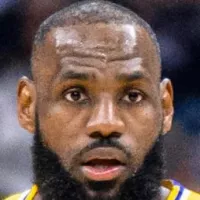
LeBron James nicknamed King James is a professional basketball player...

Michael Jordan often known as MJ is a businessman and...
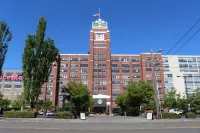
Starbucks is an American multinational coffeehouse chain established in Seattle...
McDonald's is an American multinational fast food chain As of...
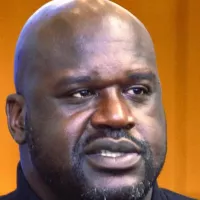
Shaquille O'Neal also known as Shaq is a retired American...
Trending
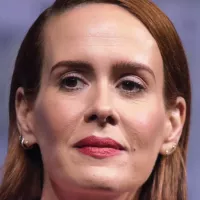
1 month ago Sarah Paulson Receives Hollywood Walk of Fame Star, Honored by Holland Taylor.
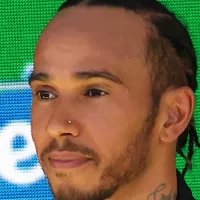
1 month ago Lewis Hamilton defends his work ethic amidst Ferrari chief's criticism and future speculation.
Kyle Anderson Li Kai'er is an American-Chinese professional basketball player currently with the Utah Jazz in the NBA He played...
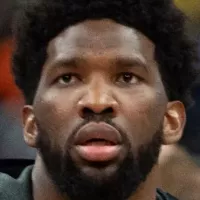
Joel Embiid a Cameroonian-American professional basketball player for the Philadelphia ers is a dominant force in the NBA Drafted third...
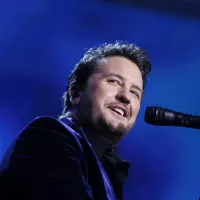
6 months ago Luke Bryan Celebrates Birthday; Announces Crash My Playa 2026 in Mexico
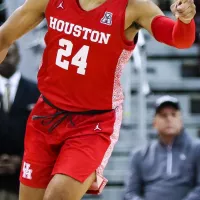
6 months ago Quentin Grimes' Free Agency Addressed Amidst 76ers' Changes and Contract Expectations.
Popular

Stranger Things created by the Duffer Brothers is a popular...

XXXTentacion born Jahseh Dwayne Ricardo Onfroy was a controversial yet...
Turning Point USA TPUSA is an American nonprofit organization founded...

Candace Owens is an American conservative political commentator and author...

Melania Trump a Slovenian-American former model has served as First...

Bernie Sanders is a prominent American politician currently serving as...
